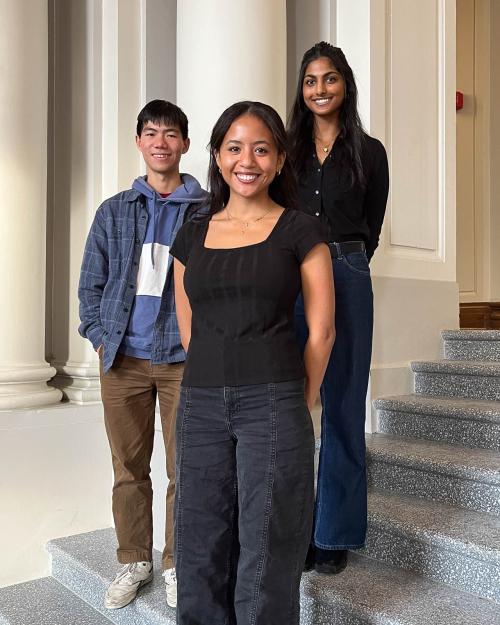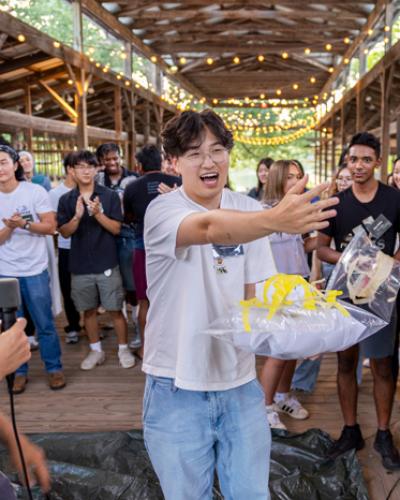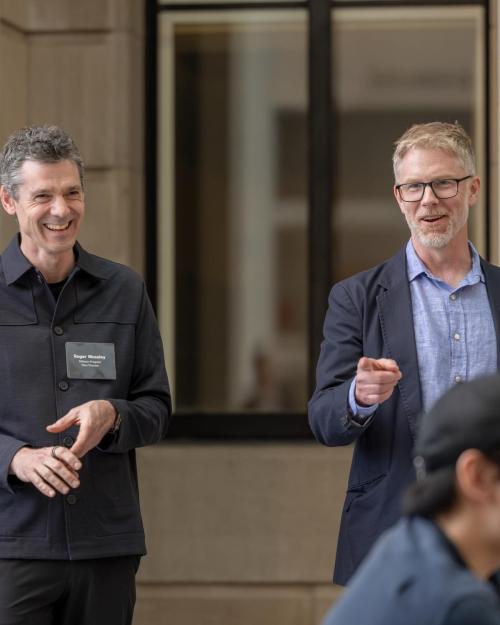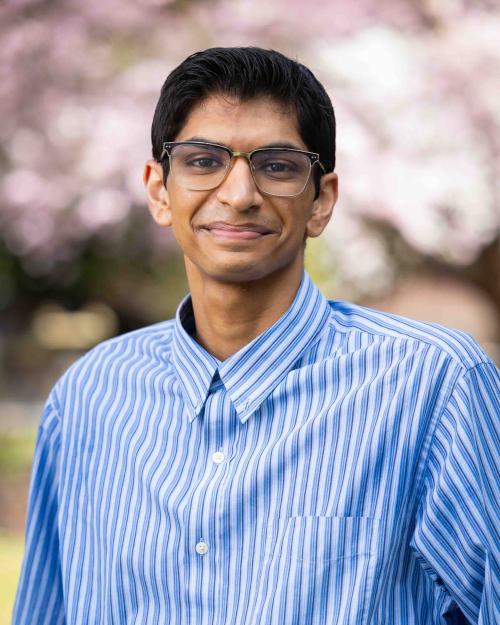Ameya Kamani
Government
Aurora, Colo.
What Cornell memory do you treasure the most?
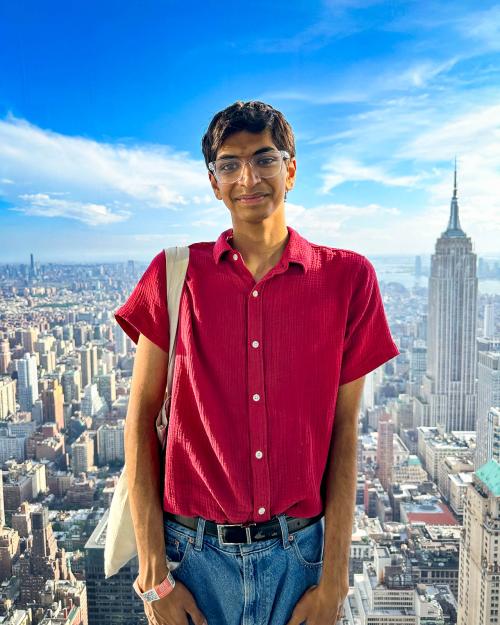
My favorite Cornell memories have been the South Asian Council’s (SAC) Mock Shaadi. When I came to Cornell, I initially worried that I would lose touch with my Indian heritage from being far away from my parents. My high school did not have a strong South Asian presence, but I could always count on the smell of cardamom and masala chai greeting me at my doorstep to bring me comfort. Yet, coming to Cornell, I was relieved to see the vibrant South Asian community on campus. Mock Shaadi is a two-day celebration of the diverse wedding rituals and traditions across South Asia through a pretend wedding. From the Sikh ritual of “Jaggo” to the Hindu “Mangal Fera,” seeing the beauty of South Asian culture has been my favorite part of the end of the academic year. As a member of SAC’s executive board, we spend several hours preparing for the festivities. Though it might seem mundane, the memory of hanging synthetic white and purple flowers atop the Temple of Zeus atrium while chatting with my friends rings in my head. Taking a moment to pause worrying about final exams to be in the company of Cornellians invested in celebrating South Asian culture helped me feel like I was part of a larger community. In law school, I hope to join a South Asian Law Students Association to continue celebrating my identity and learning about South Asian activism.
What are the most valuable skills you gained from your Arts & Sciences education?
I am most proud of the patience I have learned and internalized from my Arts & Sciences education. The reality is that Cornell’s academics are rigorous and different from high school. During freshman year, I took an Introduction to Political Theory course, and despite really loving the content, I initially struggled to meet the standards of a proper paper for the Cornell government department. When I received my first essay grade, I felt disappointed and worried about my trajectory in the major. Yet, after seeking feedback during my teaching assistant's office hours, I found the motivation to improve. It is impossible to grow when you do not give yourself the room to grow. If I saw my first essay grade and treated it as a permanent evaluation of my prowess as a student, I would not have pushed myself to ask for help and recognize areas for improvement. Patience also means recognizing when something is not working. Because every student at Cornell is immensely talented and intelligent, it is easy to want to follow the people around you. I initially desired to pursue a computer science minor because of the world-renowned Cornell computer science department and its popularity amongst students. While I absorbed so much fascinating information in CS 2110: Object Oriented Programming and Data Structures, I quickly realized computer science was not my path. Rather than beating myself up for not achieving a goal I carried coming into Cornell, I was patient with myself. Not pursuing a CS minor opened new doors to explore the history, sociology, and education departments. Letting myself explore and pivot helped me forge a path that was uniquely my own.
What have you accomplished as a Cornell student that you are most proud of?
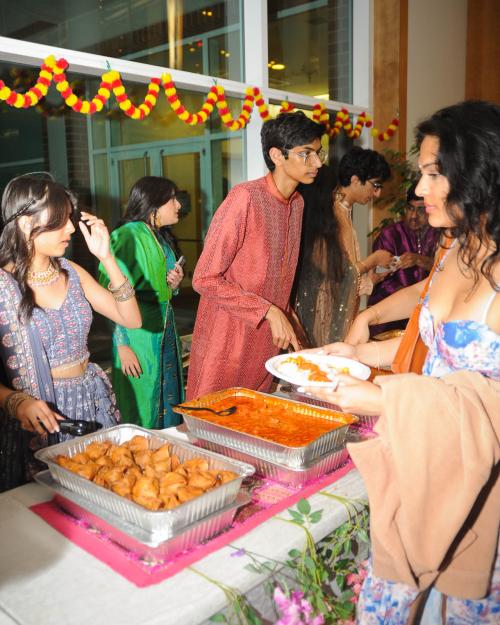
One accomplishment I am the most proud of is the breadth and depth of research I have conducted while at Cornell. When I was in high school, I always thought conducting sustained, quality college-level research was unattainable, but the staff and students at Cornell have changed my mindset. At Cornell, I have conducted field research with the Milstein Program in Technology and Humanity, data compilation with Professor Jamila Michener, and a comprehensive textual analysis for my honors thesis. During the summer after my freshman year, I worked with the Bronx Cooperative Development Initiative as a Milstein Summer Scholar. Through conversations with local Bronxites and a visit to the Bronx’s Kingsbridge Armory, I better understood how a deficit in manufacturing jobs creates cycles of underemployment, food insecurity and poverty in the South Bronx. My work that summer in the Bronx inspired me to return the following summer in a legal capacity. With Professor Michener, I research how tenant organizations build power against an increasingly untenable housing landscape and unjust evictions. Learning how small tenant unions in Montana or growing legal aid societies in Pennsylvania mobilize to protect renters has inspired me to enter a public defense career to represent the resilience and vibrancy of tenants. Lastly, my honors thesis in the government department is perhaps my strongest tie to research. My thesis analyzes how anti-colonial movements after World War II influenced the rise of prison abolition in the United States. Reading primary sources like the Student Nonviolent Coordinating Committee’s The Voice newspaper or parsing through the intricate rhetoric of Malcolm X speeches has consumed my senior year. Yet, I would have it no other way. Being able to say that I produced a 100-page document within the past year feels deeply gratifying and an apt culmination of my Cornell experience.
Who or what influenced your Cornell education the most?
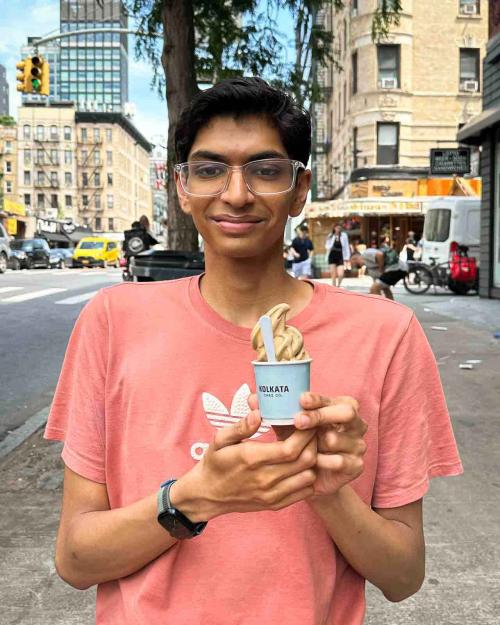
My family has been the pillar of my Cornell education. My parents immigrated to the United States from India in the 1990s for a better life for their future children. They are the hardest-working, kindest and most resilient people I know. To experience financial burdens as immigrants and tenants and remain positive is an attribute that I will forever carry. When I first got into Cornell, I was apprehensive about attending because of the distance from my home in Colorado. Yet, it was my dad, Hitesh, who pushed me to attend because he believed being a Cornellian would help me blossom academically, professionally and personally. He was right. My mother, Darshana, gave me the gift of feeling connected to my culture. Before I return to Ithaca from Aurora, she always packs me traditional Indian snacks like thepla and ghor papdi because she knows Gujarati cuisine brings me comfort. She is an immensely busy teacher, yet she still takes the time to ensure my family always feels grounded. That is a quality I have tried to emulate with my friends at Cornell. My sister, Rhea, has been one of my closest confidants. When my parents worked several jobs to keep our family afloat, my sister raised me. She instilled virtues like grace, patience and courtesy that helped me navigate life, especially college. I would not be where I am today without the nurturing, honest and inspirational force that is my family.
Every year, our faculty nominate graduating Arts & Sciences students to be featured as part of our Extraordinary Journeys series.Read more about the Class of 2025.

